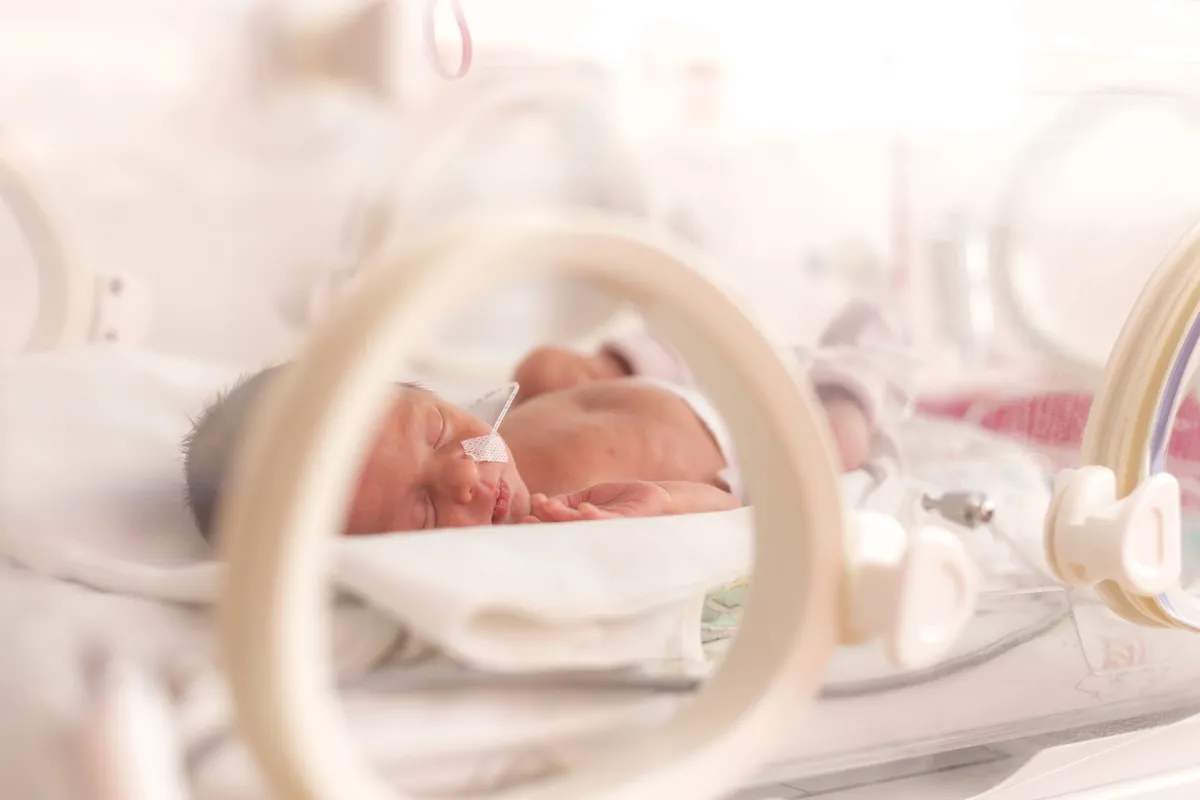A preterm baby is defined as any newborn born before the 37th week of pregnancy. Depending on the duration of pregnancy, premature babies can be classified into one of three categories:
- very extreme prematurity - babies born before the 28th week of pregnancy,
- extreme prematurity - born between 28 and 32 weeks' gestation,
- late prematurity - born between 32 and 37 weeks' gestation.
Every week of pregnancy is important for a baby's development, so premature babies often require specialised medical care. Premature babies may have lower body weight, respiratory problems, difficulty maintaining body temperature and other health complications. Proper medical care and support are essential for their health and development.
Challenges in caring for preterm infants
Caring for premature babies is a complex process that requires a team of specialists, including neonatologists, nurses, dieticians, physiotherapists and psychologists. Premature babies are often in incubators to help maintain their body temperature and support respiratory function. Many premature babies also need specialised nutrition to provide them with the nutrients they need to thrive.
The challenge is to monitor vital functions such as heart rate, respiration and blood saturation levels, as well as to take care of hygiene and prevent infections. Premature babies are more prone to infections due to their immature immune system, so caring for them requires sterile conditions and high hygiene.
The role of humanisation in the care of preterm infants
The humanisation of medicine is very important in the care of premature babies and their parents. In neonatology, this means creating an environment as close as possible to the natural conditions in the womb. One element of this approach is the 'kangaroo method', which involves direct skin-to-skin contact between parents and child. Such contact allows the premature baby to develop better emotionally and physically.
An important element of humanisation is also emotional support for parents, who often experience stress and anxiety related to preterm birth. Educating parents about the care of their preterm baby, providing them with psychological support and creating conditions for them to actively participate in their baby's care helps to build a strong parent-child bond and helps to ensure the health of the newborn.
Prematurity Day: raising awareness and supporting families
World Prematurity Day, celebrated on 17 November, is an opportunity to highlight the challenges faced by preterm babies and their caregivers and to honour medical achievements in this field. On this day, educational campaigns, awareness events and fundraising events are organised to support neonatal units and research into the care of preterm infants.
Prematurity Day is also a time to recognise the work of the medical staff, who care for the health and development of the youngest patients on a daily basis. Thanks to their commitment and professionalism, many premature babies have a chance for healthy development and a long life.
The future of care for preterm infants
Developments in technology and medical innovation are opening up new possibilities in the care of premature babies. Modern incubators, advanced monitoring systems and respiratory support techniques significantly improve the chances of premature babies to develop healthily. Support programmes for parents to help them cope with the challenges of caring for a premature baby are also playing an increasingly important role.
In the future, we can expect to see further advances in the field of neonatology, including more personalised treatments that are even better tailored to the individual needs of each premature baby. The humanisation of care, which combines modern technology with concern for the emotional and psychological comfort of patients and their families, remains an important element.
